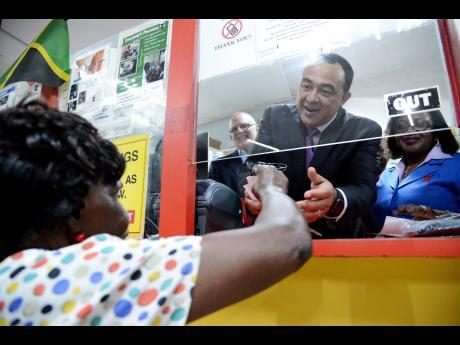
There is no doubt that the world is changing dramatically, and Jamaica is not being left behind.
Gone are the days when you have to stand in line at a store to purchase goods and acquire services.
Jamaicans are now living in a technologically advanced world where we can do anything and go anywhere without changing our physical location.
We now speak about life as if we are on an assembly line where efficiency is paramount and saving time and money crucial. This transformation is also taking place in the health care industry.
Telemedicine is set to take off globally and will allow us to access health care anyplace, anytime.
Electronic prescription is an important part of this configuration and is set to change the entire pharmacy and health care landscape.
While traditional ways of dispensing drugs afford the patient and the pharmacist the benefit of intimate contact, there is no denying that these come with challenges.
First, there is the risk of dispensing errors with handwritten, not easily decipherable prescriptions which can have potentially fatal and other negative impact.
Other issues are the slow processing of prescriptions, long wait times at pharmacies, no electronic medium for health alerts and notifications, no way to easily and closely monitor drug interactions and allergies by prescribers, and not to mention high administrative costs.
Ideal Atmosphere
The connectivity that exists in the health care technology space in Jamaica creates the ideal atmosphere to implement ePrescriptions.
Jamaica has a unique link involving health care providers (doctors, pharmacies, diagnostic centres, laboratories, eye care centres, hospitals, dentists, etc) and health insurance companies.
These systems are digitised, which means at the required time they can be made to communicate with each other.
This gives us the benefit of having Electronic Medical Records, which are essential to patient care and to the proper and effective utilisation of an ePrescription network.
In addition, one major barrier that existed has been removed with the introduction of the Caribbean Drug Codes which makes it possible to log and track all drugs used in Jamaica based on each unique formulae.
E-Prescription has benefits all around, including increased efficiency in that aspect of health care delivery, reduction in waiting time for drugs, reduced costs to access care, including filling prescriptions and easily accessible information for doctors and patients through linkages that facilitate networking and data sharing.
Through the use of an app, the ePrescription feature would enable a doctor to issue a prescription electronically and allow the patient to even choose the pharmacy at which they wish to obtain the drugs.
They would also be able to get insurance co-pay and pay for the drugs using mobile money so that it can be dispensed before arrival at the pharmacy for easy and quick pickup.
It would feature refill alerts, especially for persons on long-term medication, such as those with chronic non-communicable diseases, including diabetes and high blood pressure.
Drug/drug interaction, drug/allergy and drug/food checks can be done quickly for a prescription as long as the information is registered on the database.
The Future
A doctor could check for available stock at linked pharmacies so the drugs could be dispensed before patient, nurse or caregiver gets to the pharmacy or dispensing unit. A delivery service could also be developed around ePrescriptions.
A prescription generated directly from the point of care - physician's office or through telemedicine - straight to the pharmacist is indeed the future of health care.
Vulnerable groups such as the elderly, the very sick as well as the physically and mentally challenged will benefit immensely from the implementation and widespread use of an ePrescription platform.
The Government's disease surveillance efforts could also benefit from the wide-scale use of an ePrescription platform.
The Ministry of Health and its agencies could send out health-related warnings and collect information, using surveys.
Doctors could submit reports to the health ministry to aid in the detection or spread of diseases to facilitate proper planning and targeted responses.
It could also be used to consolidate inventories throughout government-run institutions and hospitals, allowing for proper resource allocation and planning.
- The Jamaica Gleaner

